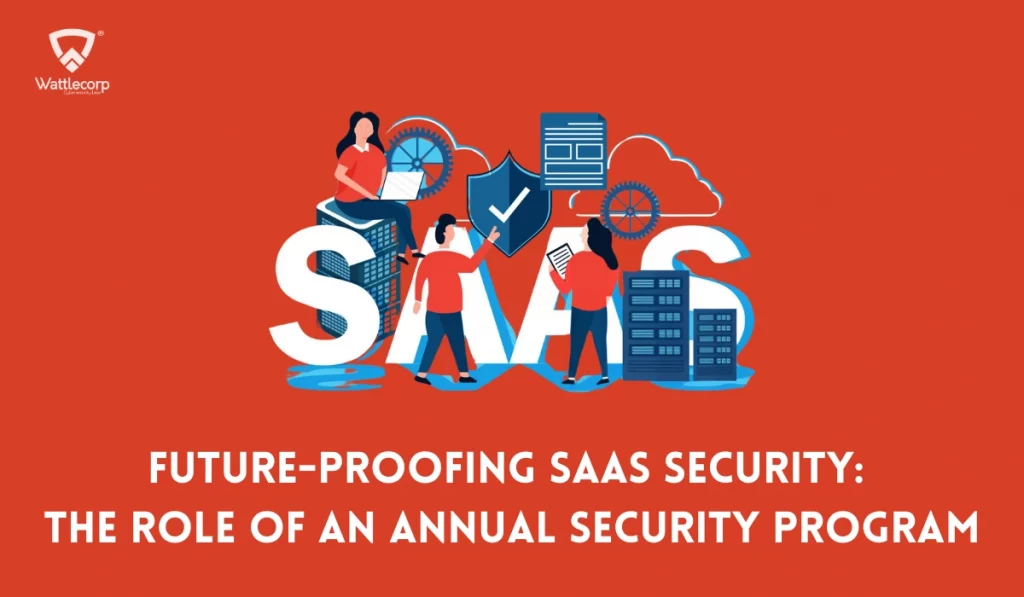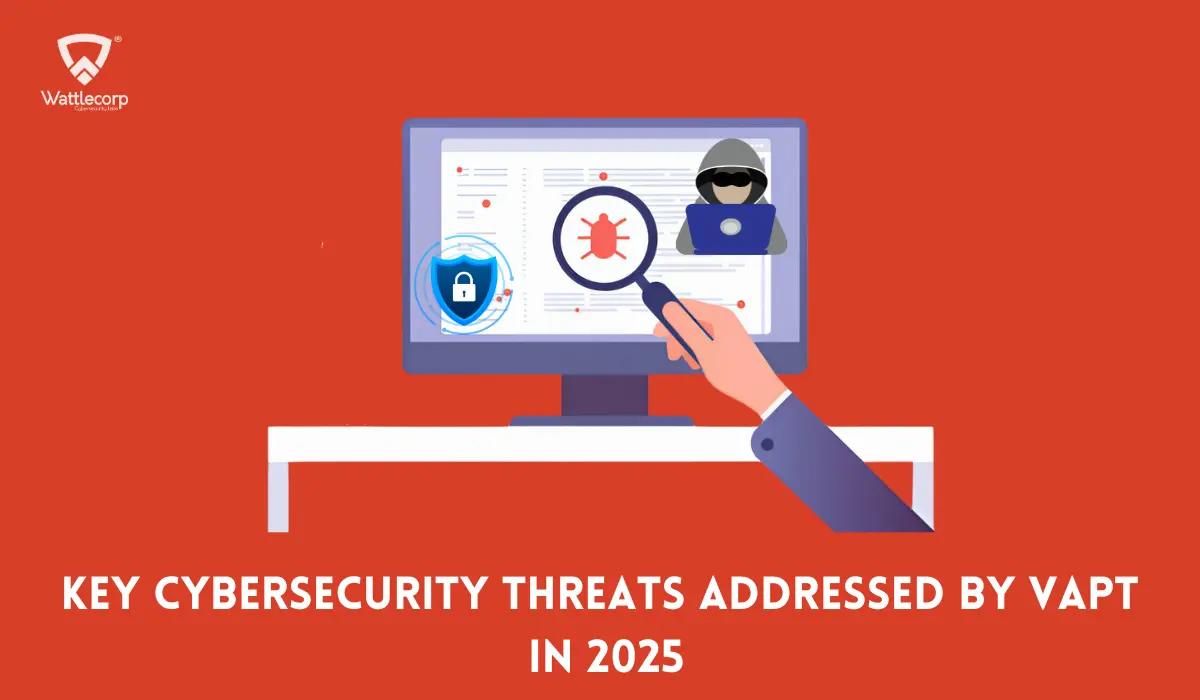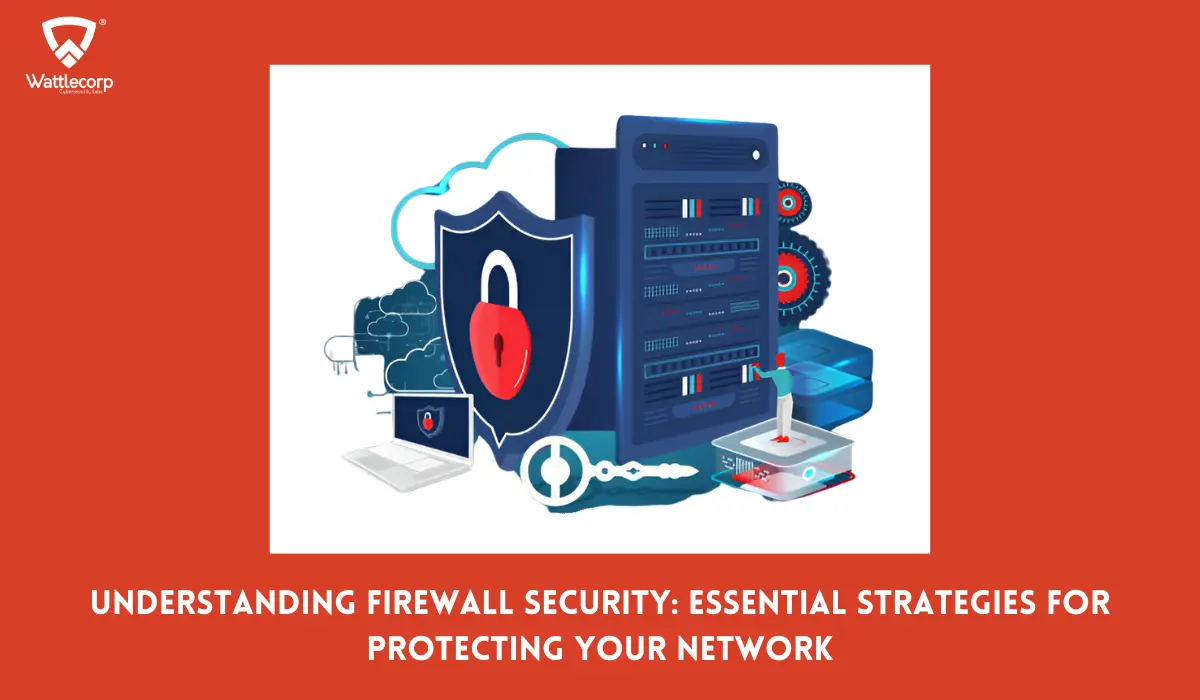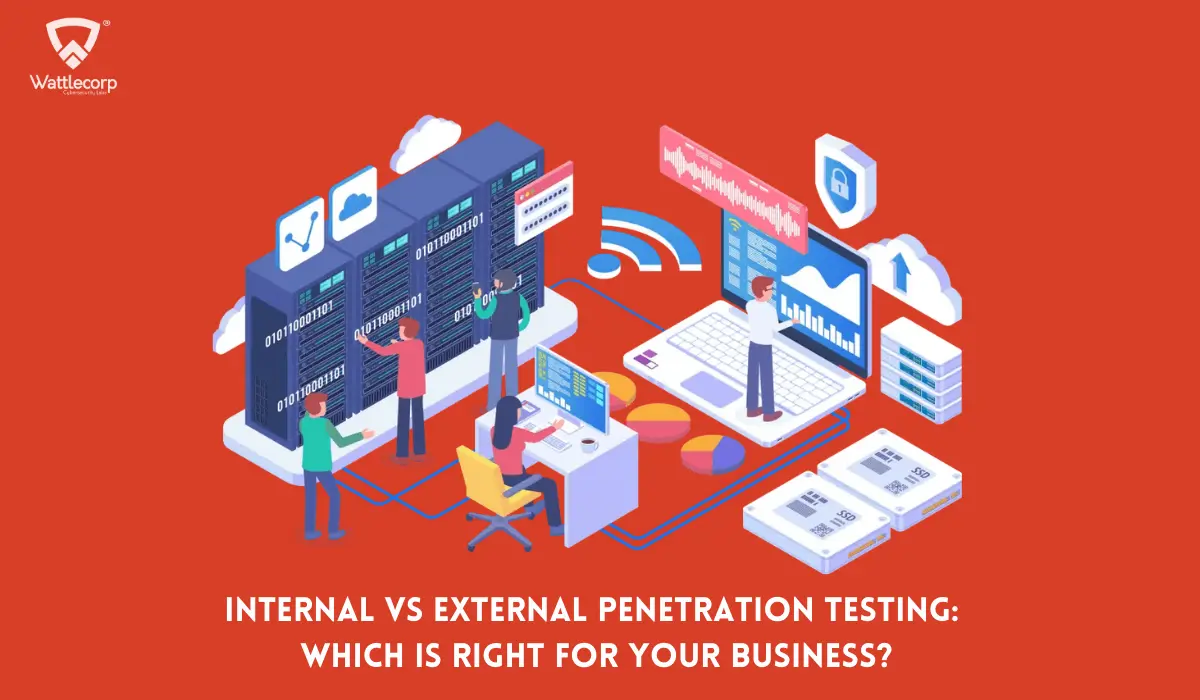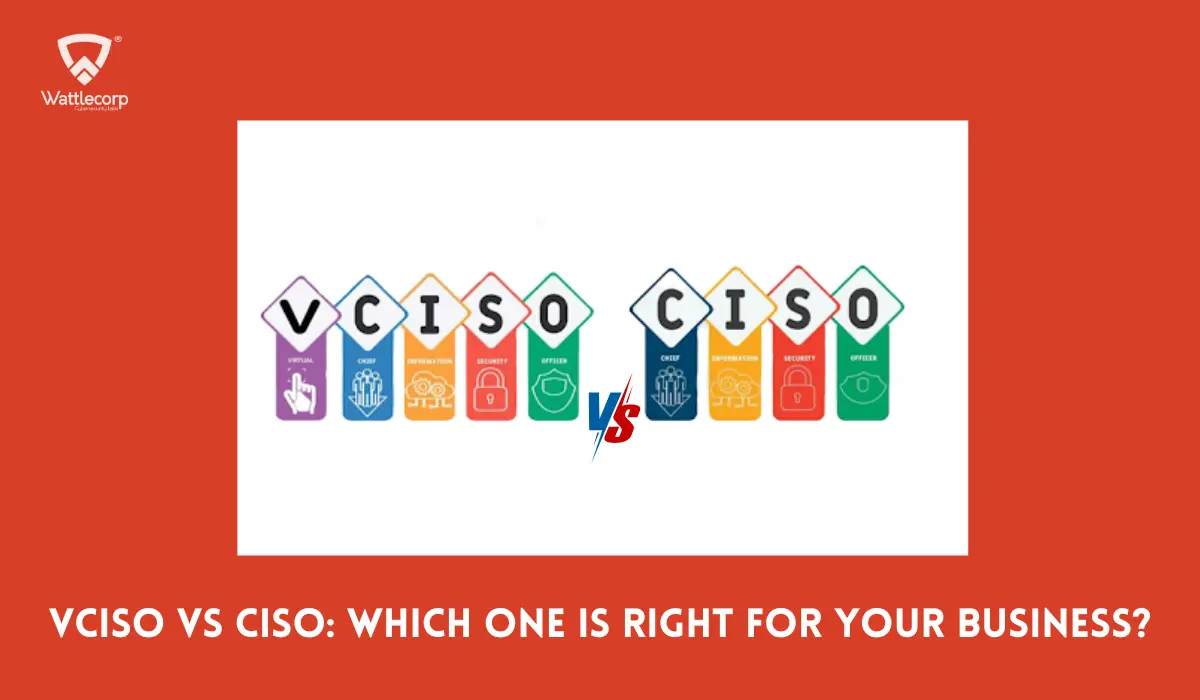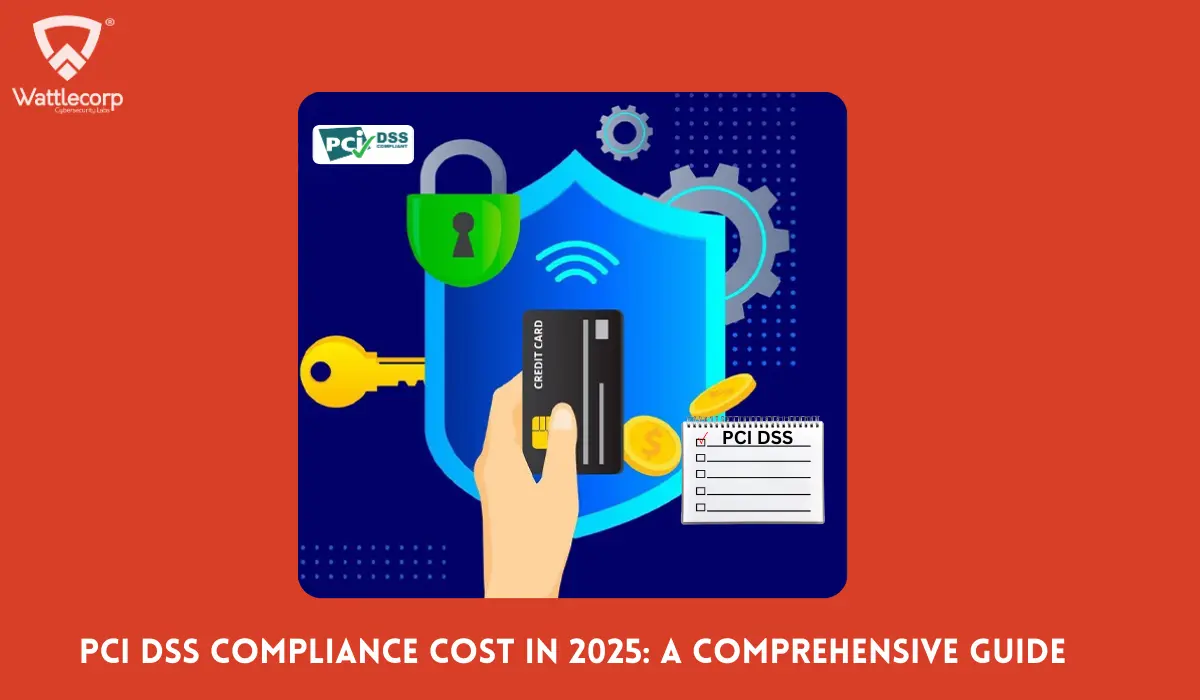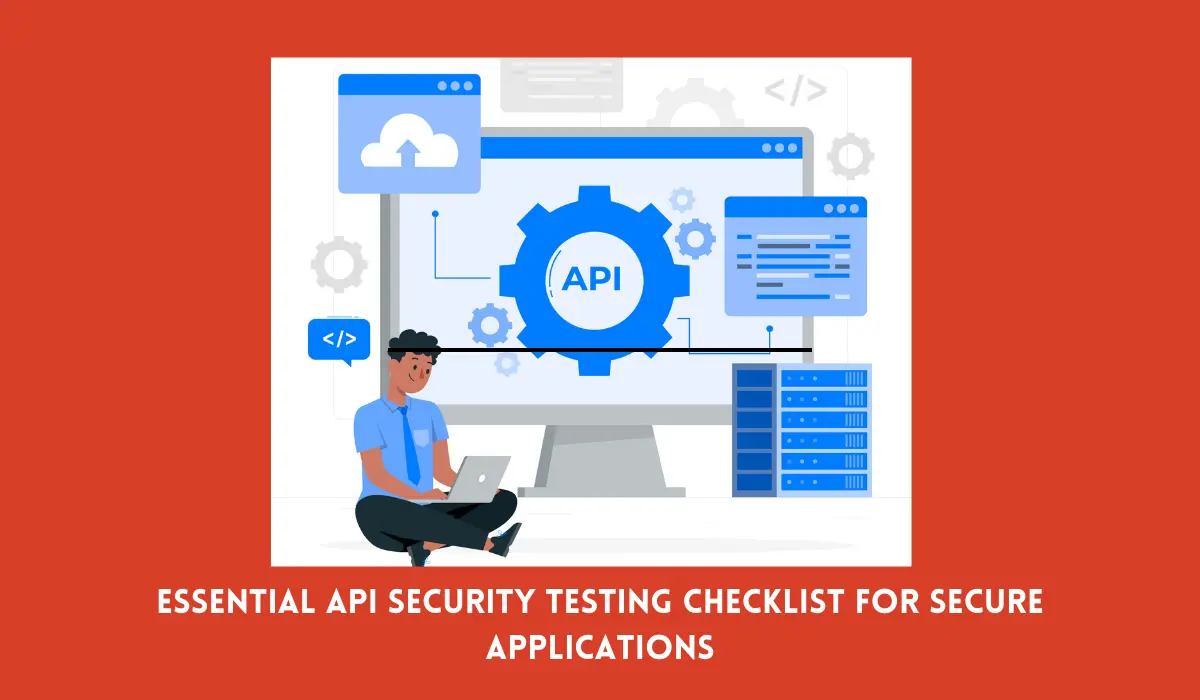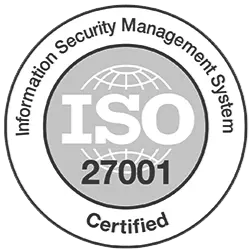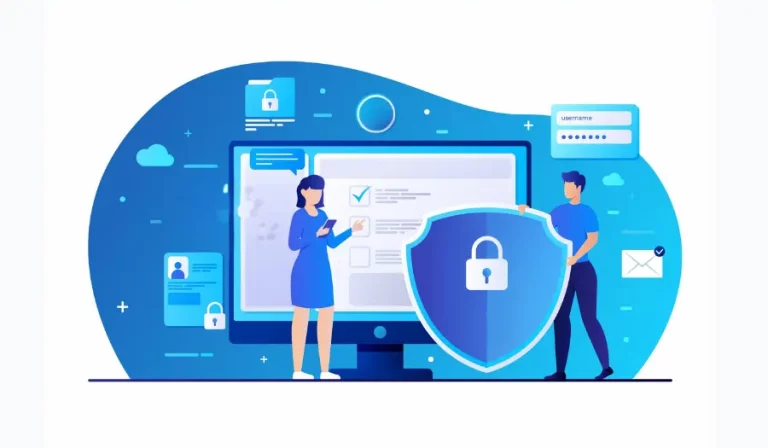Software as a Service (SaaS) applications have rapidly evolved among businesses with a key focus on innovation, agility, and streamlined operations. Still, SaaS’s flexibility and convenience have paved the way for sophisticated security challenges. Based on the 2024 SaaS security survey report, 55% of organizations have gone through a SaaS-specific incident within the past two years, which throws light on the threat landscape.
With the rapid growth of SaaS applications, the risk of cyber threats has increased, putting organizations at serious risk. Securing SaaS platforms isn’t just important—it’s critical.
That’s where the Annual Security Program steps in to safeguard businesses. What exactly is the Annual Security Program (ASP)? How does ASP help in future-proof SaaS security? Let us have a look at these in detail:
Table of Contents
Toggle- Why SaaS Security Needs Future-Proofing
- Why Do Conventional Security Techniques Fall Short?
- Importance of SaaS Security for Businesses
- The Capabilities of a Security-Oriented SaaS Bundle
- What is an Annual Security Program?
- Why Choose ASP as Your Go-to SaaS Security Program?
- Role of Annual Security Program
- What Services does ASP offer?
- SaaS Annual Security Program Roadmap
- Frequently Asked Questions
Why SaaS Security Needs Future-Proofing
As per the reports from Gartner, over 95% of the new digital workloads will be implemented across cloud-native platforms such as SaaS. This growing adoption also gives birth to new security concerns and a strong need for ideal SaaS security-building strategies. SaaS (Software as a Service) has replaced the traditional installation of software applications on computers, with applications being directly delivered over the Internet as a service. With SaaS, you can use these applications via a mobile app or a web browser.
Some other examples include Slack, Microsoft Office 365, Trello, Zoom, Salesforce, Adobe Creative Cloud, and Google Workspace. SaaS applications ignite productivity and are highly adopted among businesses to give life to business-critical apps. However, this growth has introduced the development of a SaaS attack surface. With more business functions migrating to the cloud, data breaches, insider threats, and ransomware have become more frequent.
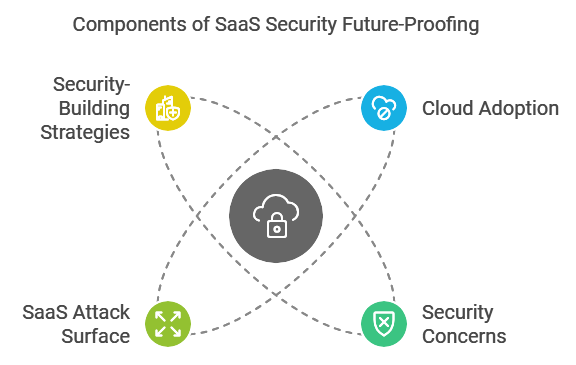
Why Do Conventional Security Techniques Fall Short?
Most organizations have only half of their applications covered under the existing Security solutions, according to the 2024 saas Security Survey report. This gives room for significant security gaps, which leaves businesses open to potential threats.
Conventional security tools like CASBs manage access to SaaS applications; however, cannot offer complete protection for the entire SaaS ecosystem. Also, manual audits can cause vulnerability while having intervals between assessments.
With growing SaaS adoption, businesses cannot depend only on fragmented solutions. Since security management is complex, organizations need a more centralized and robust approach which offers complete visibility to the SaaS stack and involves real-time threat identification.
Importance of SaaS Security for Businesses
SaaS security safeguards software-as-a service application against all possible cyber threats. SaaS is a cloud-based software delivery model in which the third-party service provider hosts and manages the applications, while the customers subscribe to use the services. About 58% of organizations have experienced SaaS security incidents in 2023, despite having invested in certain security programs. Why? Organizations are unaware of the right set of cybersecurity techniques that best protect their SaaS applications against potential risks.
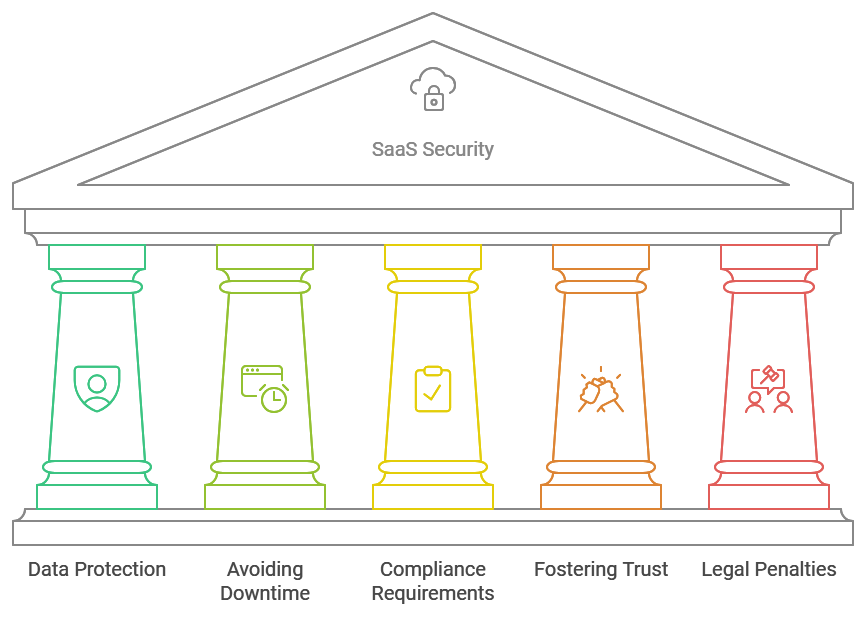
SaaS security is important as SaaS applications are helpful in many business operations, which include data storage, communication, and customer relationship management. It enables safe data and service access to anyone across the organization, no matter where they are located. It reduces the possibilities of costly incidents or downtime and protects critical systems or data. The role of SaaS security includes:
- Data Protection: SaaS applications can be prone to security breaches, particularly when employees use unintended applications. SaaS security enables protection against hackers, malicious intruders, and various other cyber threats.
- Avoiding Downtime: All the critical data and systems are protected, which pushes away the risks of downtime and any costly incidents.
- Ensuring SaaS Compliance Requirements: SaaS security follows compliance with regulatory standards.
- Fostering Trust: SaaS cloud-based software security enables building customers’ trust and improves the organization’s reputation.
- Eliminating Legal Penalties: Data breaches can result in legal penalties. SaaS cybersecurity helps you get out of these effects.
Also Read : Server Hardening: The Backbone of SaaS Security
The Capabilities of a Security-Oriented SaaS Bundle
Let us discuss why a comprehensive security approach needs the power of security-focused SaaS bundle that goes beyond the usual security features and incorporates additional best practices for improving SaaS security posture, such as:
1. Single Sign-On ( SSO)
A single login helps you enjoy access to multiple applications. This user authentication minimizes the complications of password fatigue or compromised credentials.
2. Advanced Threat Detection
The systems track user activity and monitor network traffic for any suspicious activities. It helps in the proactive identification of threats and ease of migrating the possible security threats.
3. Data Loss Prevention
It prevents sensitive data from being undesirably or accidentally shared to unauthorized channels.
4. Regulatory Compliance Support
Security-focused bundles provide tools and support to identify the critical compliance needs that fall on your industry. With the security-focused SaaS solution, businesses can adopt a multilayered defense to fight security threats. This protects sensitive data and also wins the customer’s trust.
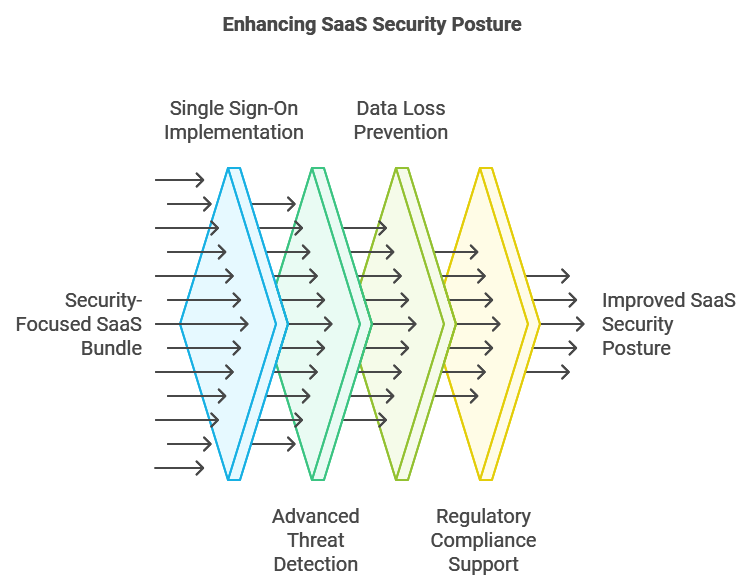
What is an Annual Security Program?
About 70% of enterprises prioritize SaaS security with specialized teams to keep the applications secure. This proves how important it is to secure SaaS applications and why organizations are keen on investing more in ensuring 360-degree SaaS security.
The Annual Security program is a formal approach to helping businesses secure data and follow compliance with regulatory standards.
It usually includes the following:
- Security Awareness Training: The program educates people, including stakeholders and employees, about data privacy and security. It often includes micro-learning modules, e-learning courses, anti-phishing training, etc.
- Security Policies and Procedures: A set of guidelines that let organizations secure data and follow compliance standards.
- Vulnerability Assessment & Penetration Testing: An assessment method to check the organization’s level of security.
The annual security program lets you mitigate risks and adopt quick actions to respond in time. These are crucial since the risk and frequency of data breaches are increasing day by day.
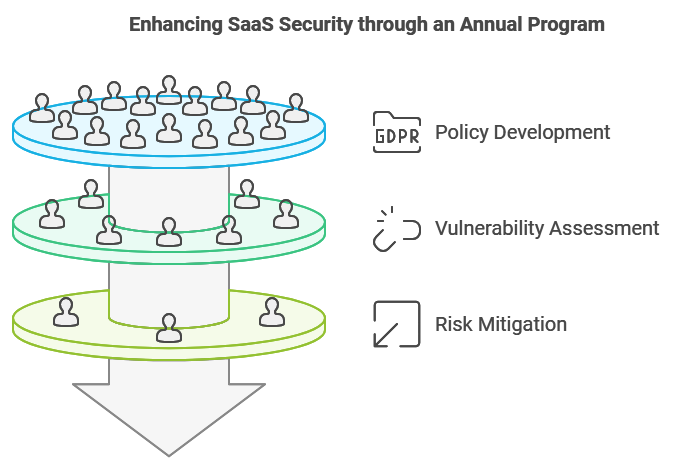
Why Choose ASP as Your Go-to SaaS Security Program?
Why do SaaS businesses need an Annual Security Program? ASP is here, so you can make long-term solutions to build secure systems and fight against cyber attacks.
Managing a cybersecurity team and overcoming challenges in SaaS security management isn’t an easy task when you need to build and scale your SaaS application. This is where ASP can help you out. The Annual Security Program is especially designed for SaaS companies, and it takes away the stress of cybersecurity.
Here are the reasons you should stick to an Annual Security Program (ASP) for SaaS security posture management:
1. Complete Cybersecurity Management
It monitors everything, including source code to continuous monitoring, and you just need to sit back.
2.Cost-Effective Approach
It reduces costs to 50% and also manages top-notch security, which is a highly cost-efficient method you can go for.
3. Quick Product Releases
You can get more confident product releases and fewer vulnerabilities due to secure coding and frequent assessments.
4. Minimized Downtime & Productivity Loss
With a proactive approach, it prevents disruptions before they occur. It eliminates the security issues from the roots and avoids loss of productivity.
Also Read : Why Your SaaS Business Needs an Annual Security Program
Role of Annual Security Program
Let’s delve deeper into the reasons why SaaS businesses need an annual security program:
Expert Penetration Testing
Employ simulated cyberattacks on your system well before the real attackers do it. Identify weaknesses beforehand, address and eliminate vulnerabilities, and offer strategies to level up your defense through penetration tests.
1. Regular Code Reviews
Regularly monitor your code to make sure that it is free from all vulnerabilities and secure. This proactive approach helps to avoid potential breaches, helping your software work safely from the start.
2. Regular Security Strengthening
Identify and fix the security vulnerabilities promptly before you launch any new updates or features to the system. This lets you follow a quick release cycle while maintaining security standards.
3. Protection Round the Clock
Get continuous security monitoring, which alerts you of any suspicious activity. You can relax knowing that your SaaS product is always being monitored and secure against any possible threats, anytime.
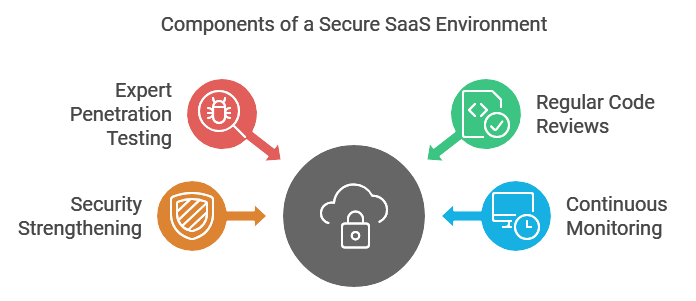
What Services does ASP offer?
Annual security program ensures complete security management. It handles everything ranging from source code review to frequent monitoring— you need not worry at all! Let’s learn the core pillars of a successful annual security program:
1. Comprehensive Vulnerability Assessment
Identifies the vulnerabilities in the automated checks quickly. A detailed assessment by cyber security experts is carried out to make sure every threat is detected for SaaS vulnerability management.
2. Secure Development and Configuration
Ensures that the code and the configurations remain protected. This process also makes sure it prevents breaches and optimizes the system settings according to the best industry practices.
3. Server Optimization and Hardening
Evaluate and optimize the server performance while managing defenses to ensure high-end and robust security.
4. Compliance and Data Privacy
Adheres to industry standards such as HIPAA, GDPR, ISO 27001, and PCI DSS. These help secure data, eliminate fines, and win trust.
5. Proactive Threat Management
Ensure proactive Cyber threat mitigation for SaaS platforms and streamlined automated responses for attacks. This helps reduce downtime and damage.
6. Continuous Security Monitoring
Secure your systems 24/7 and ensure real-time updates with quick responses to threats. This helps to undertake rapid actions against any security concerns.
7. Bug bounty validation and Management
This evaluates and manages the reported vulnerabilities to make sure these are prioritized. It enables businesses to strengthen security through efficient and expert-led threat management.

SaaS Annual Security Program Roadmap
Building a highly resilient SaaS security strategy requires a thoughtful and preventative approach. With a holistic approach towards adhering to SaaS security, enterprises can scale their capability of detection and response to real-time threats. This helps in building future-proof SaaS security for your business applications.
With an efficient cyber security team or by seeking the support of a top cybersecurity services company like Wattlecorp, you can get a long-term solution to keep your SaaS applications highly secure.
How to implement an annual security program for SaaS? At Wattlecorp, you get the services from a reliable cybersecurity team, incorporating all the aforementioned capabilities of ASP to secure your SaaS applications to 360 degrees, helping your SaaS business thrive.
To learn more about the Annual Security Program and to seek assistance for your SaaS security, let’s talk!
Frequently Asked Questions
1. How can an Annual Security Program protect my SaaS platform?
An Annual Security Program (ASP) helps you secure your SaaS platform through continuous audits to ensure compliance with regulations. At Wattlecorp, our ASP lets you keep systems up-to-date with advanced security patches. It also triggers access controls and performs threat monitoring and incident response mechanisms to eliminate security breaches.
2. How does future-proofing SaaS security help prevent cyberattacks?
Future-proofing SaaS security can act against security threats and be prepared with adaptable security techniques. With continuous and ideal protection, it lets you keep the platform updated using advanced technologies and adopt best practices to stay against potential vulnerabilities.
3. What are the risks of not having a comprehensive security program for my SaaS business?
Not having a comprehensive security program can have devastating effects on your business. This can include business risks, security breaches, financial loss, and legal penalties. It can also make your platform vulnerable to cyber threats, which damage customer trust and affect brand reputation.
